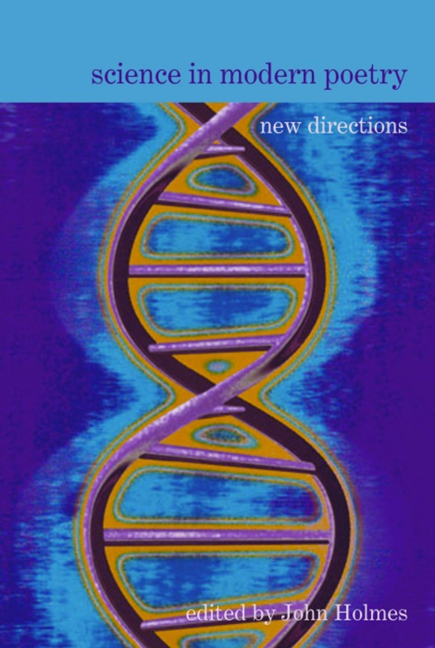Introduction
Summary
At the beginning of the twentieth century the English poet Robert Bridges declared:
History and science our playthings are: what an untold
Wealth of inexhaustive treasure is stored up for amusement!
(ll. 76–77)
Taking geology as his first example, he continued:
Shall not the celestial earth-ball
Equally entertain a mature enquiry, reward our
Examination of its contexture, conglomerated
Of layer'd debris, the erosion of infinite ages?
Tho’ I lack the wizard Darwin's scientific insight
On the barren sea-beaches of East Patagonia gazing,
I must wond'ring attend, nay learn myself to decipher
Time's rich hieroglyph, with vast elemental pencil
Scor'd upon Earth's rocky crust […]
(ll. 82–90)
Bridges's poem, entitled Now in Wintry Delights (1903), seems fustily antique, yet it anticipates surprisingly precisely poetry's wider engagement with science in the twentieth and twenty-first centuries. On the one hand, Bridges defers to science. He promises to ‘attend’ to its teaching, to ‘learn’ its methods, in order to advance his own understanding. Educated in classics at Oxford in the 1860s, Bridges had retrained in medicine at St Bartholomew's Hospital in London in the early 1870s. He went on to work as a physician in a number of hospitals before coming into the private income which allowed him to work full-time on his poetry. Like several other prominent twentieth-century poets – William Carlos Williams, Marianne Moore and A. R. Ammons among them – Bridges's scientific training gave him both a respect for science and a confidence when it came to incorporating it into his poetry. For while Bridges does defer to science, he also takes it as a ‘plaything’, a theme on which a poet can produce variations for his own and others’ ‘amusement’. Bridges's characterisation of Darwin as a ‘wizard’ is typical of this blending of admiration for scientists’ achievements with an impish playfulness which refuses to take science wholly on its own terms. It suggests too that for a poet, steeped in past lore and literature, science can seem to be – and can instructively be made to appear as – an occult activity. The poet's role, for Bridges, is not merely to celebrate science or to communicate its findings, but also to transform it into something new, something which, in the act of extending the reach of poetry, sheds new light on science itself.
- Type
- Chapter
- Information
- Science in Modern PoetryNew Directions, pp. 1 - 16Publisher: Liverpool University PressPrint publication year: 2012



